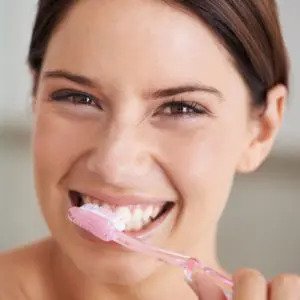
“I’m doing what I’m supposed to, why am I still getting tooth decay?” We understand the frustration and will try to answer this question here.
How Do Cavities Form?
Teeth are composed of minerals. When we drink sugary drinks or eat sweet or starchy foods, the bacteria that naturally live in the mouth consume the remnants of these items. Bacteria then produce acid, and acid deteriorates the enamel of our teeth. The mouth has a pH level, which can range from being more or less acidic. The more acidic the mouth is, the more the minerals in the teeth degrade.
After eating or drinking, it takes the mouth up to an hour to return to a more neutral pH level. This is one area in which we can go wrong. We’ll use coffee as an example. Coffee itself is an acidic beverage. Then, most people add sugar and cream to the one or more cups they enjoy throughout the morning. Sipping a cup of coffee with sugar and cream, or a soda, for that matter, over a long period of time prevents the mouth from returning to a healthy pH balance. The mouth stays on the acidic side and the risk of tooth decay remains higher than normal.
Additionally, when we eat, the sticky, invisible biofilm of plaque accumulates on and around the base of teeth. Plaque itself is acidic, so needs to be removed frequently to protect enamel and allow teeth to remineralize, which they do naturally. Teeth remineralize through saliva. Our saliva, when we drink fluoridated water (such as tap water or bottled water), contains fluoride that helps this process of remineralization. One way that we can help reduce our risk of cavities is to avoid lingering over foods and drinks, with the exception of water. If we drink a cup of coffee or can of soda, we should drink it then drink water for the next few hours at least. Snacking should also be avoided. Another is to rinse the mouth out with water after drinking or eating.
What About Brushing?
If you’re brushing twice a day and still getting cavities, the tips we’ve offered may help. Also, the timing of brushing can increase the effectiveness of this practice. Most people brush morning and night. This is ideal. Brushing in the morning resets the pH of the mouth by removing debris and bacteria that have accumulated during the night. Brushing before removes the plaque, bacteria, and acidity that have developed during the day so the teeth can remineralize while sleeping. We should brush for two minutes and then floss, which adds only about 2 minutes at the skin.
The practices that help prevent tooth decay are easy for people of all ages. If you need help improving your oral health, we’re here. Contact our Aventura office at 786-837-5266 to schedule a checkup and cleaning.

